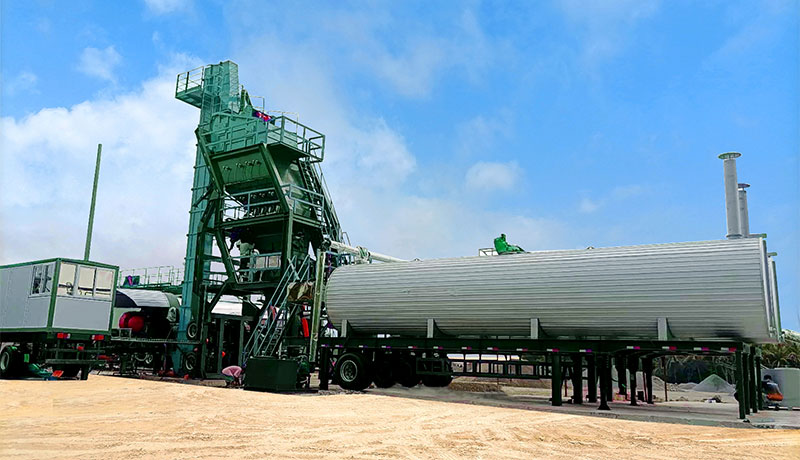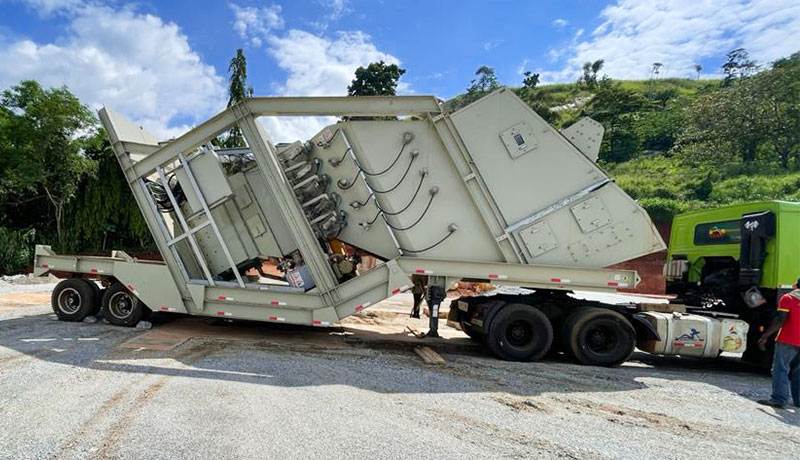Asphalt plants are vital to infrastructure development, but their operational noise can strain community relations, violate regulatory standards, and even impact worker health. Uncontrolled noise from crushers, mixers, dryers, and material handling equipment often exceeds acceptable decibel levels—creating friction with nearby residents and risking costly fines. The good news? With strategic planning and targeted solutions, asphalt plant operators can effectively contain noise while maintaining operational efficiency. This guide breaks down actionable strategies to mitigate noise at every stage of plant operation.

Before implementing solutions, it’s critical to pinpoint the primary noise generators in your asphalt plant. A thorough noise audit—using sound level meters (SLMs) or acoustic mapping—will reveal which equipment or processes contribute most to noise pollution. Common hotspots include:
Crushing and screening equipment: Jaw crushers, impact crushers, and vibrating screens produce high-impact, repetitive noise (85–110 dB).
Mixing drums: Rotating drums and material discharge create mechanical and airflow noise (80–100 dB).
Dryers: Combustion fans and rotating components generate continuous humming and rattling (85–95 dB).
Material handling: Conveyors, loaders, and truck traffic cause impact noise from falling aggregate and engine roar (75–90 dB).
Ventilation systems: Exhaust fans and dust collectors emit high-velocity airflow noise (70–90 dB).
By mapping these hotspots, you can prioritize solutions that deliver the biggest noise reduction impact.
Controlling noise at its source is far more effective than dealing with it later in the transmission chain. The following solutions target noise sources, directly reducing noise output by equipment and processes:
Investing in modern, low-noise machinery is a long-term solution that pays off in compliance and reduced maintenance. Look for:
Crushers with noise-dampening liners: Rubber or composite liners absorb impact, cutting noise by 10–15 dB.
Variable frequency drives (VFDs): For fans and pumps, VFDs adjust speed to match demand, reducing unnecessary noise from overworking equipment.
Enclosed mixing drums: Newer drum designs feature insulated casings that contain mechanical and combustion noise.
Worn or poorly maintained machinery is a major noise culprit. Regular upkeep ensures parts operate smoothly and quietly:
Lubricate bearings, gears, and chains to reduce friction-induced noise.
Replace worn belts, pulleys, or screen meshes—loose or damaged parts create rattling and vibration.
Tighten bolts and fasteners on frames and housings to minimize structural vibration (a common source of secondary noise).

Noise isn’t just airborne—it travels through floors, walls, and foundations via vibrations. Vibration dampening prevents equipment noise from turning into structural noise (e.g., a rumbling floor that amplifies throughout the plant).
Install these between equipment and its foundation to break the vibration path:
Spring isolators: For heavy machinery (crushers, mixers), spring isolators absorb high-amplitude vibrations.
Rubber mounts: Cost-effective options for lighter equipment (conveyors, small fans) that reduce low-frequency vibration.
Floating floors: For indoor areas, floating concrete floors (isolated from the main foundation with rubber or neoprene) prevent vibration from spreading to adjacent rooms.
Apply materials that convert vibration energy into heat, reducing noise:
Damping pads under conveyor belts to minimize impact noise from falling aggregate.
Viscoelastic coatings on metal surfaces (e.g., dryer housings) to dampen resonant vibrations.
Even with site-wide noise reduction, some areas may still exceed OSHA’s permissible exposure limit (PEL) of 90 dB over 8 hours. Protect workers with these measures:
Hearing protection: Provide earplugs (disposable or custom-molded) or earmuffs that reduce noise by 20–35 dB. Ensure PPE is properly fitted and regularly replaced.
Administrative schedules: Rotate workers out of high-noise areas to limit exposure time (e.g., 2-hour shifts at the crusher).
Quiet break rooms: Designate sound-insulated areas where workers can rest and recover their hearing.
Noise control isn’t a one-time fix—regular monitoring ensures solutions remain effective as equipment ages or operations expand:
Conduct monthly noise checks with SLMs to track levels at hotspots and property boundaries.
Review local regulations (e.g., EPA guidelines, state noise ordinances) annually to stay ahead of compliance changes.
Train staff to report unusual noise (e.g., a sudden rattle from a conveyor) so issues can be addressed quickly.
Containing asphalt plant noise is not a one-time project but an ongoing process of assessment, investment, and maintenance. Start by conducting a professional noise survey to pinpoint your specific problems. Then, prioritize solutions based on the biggest noise contributors and your budget.
Containing asphalt plant noise isn’t just about avoiding fines—it’s about building trust with nearby communities and protecting your workforce. By combining source reduction, physical barriers, vibration control, and worker protection, you can create a quieter, more sustainable operation. Start with a noise audit to prioritize high-impact solutions, and consider partnering with acoustic engineers for custom designs tailored to your plant’s unique layout. With the right strategy, you can keep production on track while keeping noise in check.